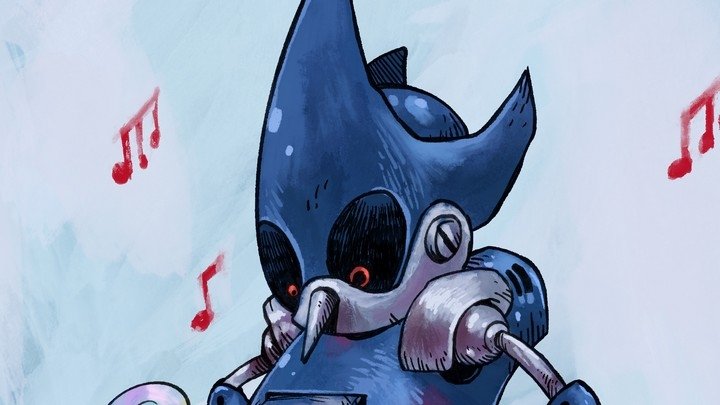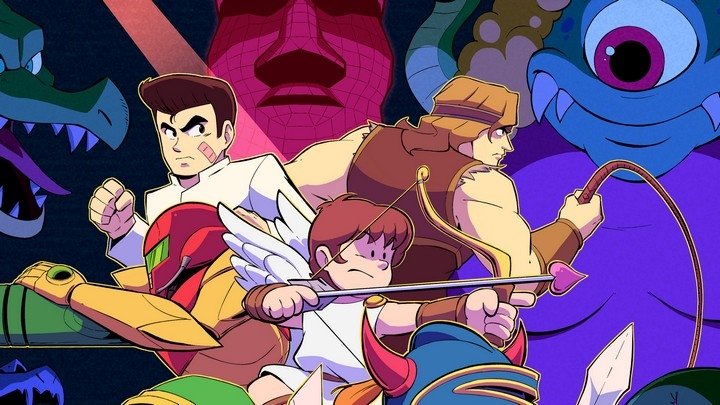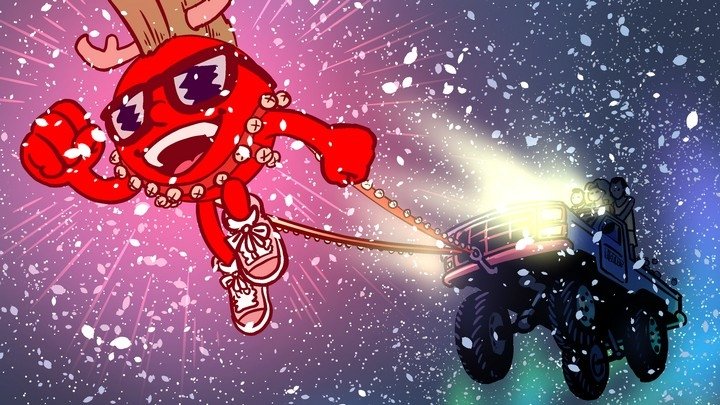Retro Re-release Roundup, week of August 31, 2023
Cadash, Karateka and Kikikaikai.
After years of threatening to enter the world of self-publishing, Digital Eclipse has, at long last, released their first self-funded classic game reissue; designed to their content and, ideally, released to a sizeable audience that hungers for hyper-specific sojourns into digital history. I'm putting this out there right now: one of the first ten Gold Master releases will be an all-encompassing Bubsy shrine, and it'll put Sonic Origins to shame.
ARCADE ARCHIVES
Cadash
- Platform: Nintendo Switch, PlayStation 4
- Price: $7.99 / €6.99 / £6.29
- Publisher: Hamster / Taito

What's this? A co-operative sidescrolling fantasy action-RPG, originally developed and distributed in arcades by Taito in 1989 and subsequently converted for PC Engine/Turbografx-16 in 1991 and the Sega Genesis in 1992, with sporadic emulated reissues via various '00s-era Taito arcade compilations and, most recently, the Egret II Mini plug-and-play mini arcade cabinet. Players are tasked with selecting one of four character classes before embarking on a quest to save the king's daughter from a balrog that has abducted her to the castle Cadash; in order to complete their quest, players will not only have to defeat enemies with conventional side-scrolling action combat but gain experience, purchase and equip gear and items, visit inns to restore their health and magic power, explore and backtrack through vast stages and contend with an omnipresent timer that can only be replenished by advancing to new stages and/or purchasing expensive hourglass items. (The original international arcade release supported up to four players via networked cabinets, but the versions presented here are limited to two characters.)
Why should I care? Most of the RPG-tinged arcade action games of this era overlaid rudimentary currency/equipment systems onto what were essentially very linear and orthodox action games, but Cadash stands apart for being thoroughly infused with all sorts of deeper RPG conventions, most of which were directly lifted from good ol' Dragon Quest; to that end, a lot of the more specific or laborious elements of the game run contrary to the game's merciless timer, so being able to play this game at home (and with the ACA's versions special options that allow one to adjust the timer or display your hidden experience values) might be the optimal way to play.
Useless fact: The Japanese version has an even-wider-than-usual array of substitute names to use in place of any filthy words one might be tempted to enter; additionally, certain names will change the sprites of one of the bosses into one of a few different things, including pixel-art heads of the original developers.
NINTENDO SWITCH ONLINE EXPANSION PASS
August '23 update: Excitebike 64 (Nintendo 64)
What's this? A 3D revival of Nintendo's classic NES motorcycle racing game, Excitebike, originally developed by Left Field Productions and published by Nintendo in 2000/2001, with a re-release via the Wii U Virtual Console in 2016; in addition to the main championship, exhibition and time trial modes, the game offers a custom course creator and a suite of unlockable single and multi-player modes including a soccer mode and a stunt-based mode, as well as both a port of the original Excitebike and a remake of the original courses in the new engine.
Why should I care? I'm not sure why Excitebike 64 isn't as widely-acclaimed as the likes of other 2D-to-3D adaptations like Wave Race 64 or F-Zero X, but it's just as enjoyable and perhaps the most accomplished at truly adapting all the nuances of the original game into the third dimension, rather than being a new game with an old name — maybe it just came out too late in the N64's life-cycle for it to cement in peoples' memories; maybe people just wrongly presumed it was trying to be a Tony Hawk game or somethin', iunno. Whatever, play it now and see the light.
Useless fact: For some reason, the Japanese version is missing the high-resolution Expansion Pak option that's present in the other versions. Search me.
DIGITAL ECLIPSE GOLD MASTER SERIES
- Platform: Nintendo Switch, PlayStation 4+5, Xbox, PC via Steam (worldwide)
- Price: $19.99 or equivalent
- Publisher: Digital Eclipse
What's this? The first salvo in a new line of self-published multimedia documentary apps from Digital Eclipse that aim to hone in on specific games and creators; this release focuses on the 1984 martial arts action game Karateka and documents the history and production of the game via interviews with creator Jordan Mechner and associates, an interactive timeline of archival footage and development materials, an assortment of playable prototypes and unreleased games, a gallery containing commentated drop-in, drop-out playthroughs of the game and, of course, several playable versions of the complete Karateka.
Which games are included? You're getting the original Apple II, Commodore 64 and Atari 8-bit version of Karateka, plus prototypes, as well as a brand-new version of the game with updated graphics and audio and the implementation of cut/unused content, titled Karateka Remastered; additionally, you'll have access to several prototypes of Jordan Mechner's first game, the unreleased and unfinished Deathbounce, as well as a brand-new Remastered version that attempts to both complete and reimagine the game based on the original design notes. All the usual Digital Eclipse features are in place: save states, rewind, screen filters, etc.
Why should I care? The precise aim of this line of reissues is to engender an interest in and appreciation for games that you might not care about, so it almost doesn't matter if you care or not going in — just let 'em know how they did once you're done.
Helpful tip There's been some last-second delays that soley affect the Switch version, depending on region, but it should be available everywhere within the week.
QUBYTE CLASSICS
- Platform: Nintendo Switch, PlayStation 4+5, Xbox (worldwide)
- Price: $9.99 or equivalent
- Publisher: QUByte / Piko Interactive
What's this? A very silly brawler designed and produced by many of the folk responsible for Cho Aniki, originally released in extremely limited quantities for the Super Famicom in 1995 (as Gourmet Sentai Barayarou), reissued on SNES-friendly cartridges in 2018 (as Gourmet Squad) and published on PC with a new translation in 2019 under its current title, Gourmet Warriors, with this being the first reissue for modern consoles; in addition to pulverizing the game's many strange characters, players are able to collect the foodstuffs dropped by their foes and combine them between stages in order to confer certain effects, both good and bad, to their player-characters. (As is standard for Qubyte Classics, you're basically just getting a ROM here, and just the one ROM at that: even if you buy from a Japanese storefront, you'll only be able to play the translated version, not the untouched original.)
Why should I care? You're strictly interested in seeing a lot of very strange enemies and exquisitely-animated enemies, and don't at all mind that actually fighting them isn't all that exciting.
Helpful tip: Most of the enemy roster is selectable via a hidden command — on the character select screen, hold L+R to allow the cursor to move freely around the screen and then try selecting random areas of the screen between the character names/letters in order to select one of the game's enemies.
OTHER
- Platform: PlayStation 4+5, Nintendo Switch, PC via Steam (worldwide)
- Price: $49.99 or equivalent (consoles) / $24.99 or equivalent each (PC)
- Publisher: NISA / Engine Software
What's this? A collection containing the second and third entries in Nippon Ichi Software's sing-song-y RPG series Rhapsody, originally released exclusively in Japan for the PlayStation in 1999 and the PlayStation 2 in 2000, respectively. This collection offers first-ever localizations for both games, with English text and English/Japanese audio; as far as I'm aware, the ports conform to the specs of NISA's previous NIS Presents reissues, which is to say they're extremely barebones, save for some basic screen settings. (The games are only available as a two-pack on consoles, and separately on PC.)
Why should I care? As always, I'm completely lost on the appeal of most any Nippon Ichi RPG, but it's heartening to see that their reissues are doing well enough to justify fresh localizations for Japan-exclusive games (and lord knows NIS has plenty more in the tuck).
Useless fact: This series has less direct ties to a whole bunch of other NIS games, but it also has two explicit spinoffs: Marl de Puzzle, a themed take on NIS' long-running competitive jigsaw puzzle games, and MARL JONG, a themed mahjong game that I imagine would not exist if not for the title pun.
- Platform: Nintendo Switch (worldwide)
- Price: $39.99 or equivalent
- Publisher: Taito / ININ Games
What're these? A second ten-game compilation of emulated arcade games from the Taito library, following the inaugural collection released last year; as with the first Milestones release, this collection was developed and produced by Arcade Archives studio Hamster and is essentially ten ACA/soon-to-be-ACA games slapped onto a card, with a virtually identical feature set which includes a basic save state, online leaderboards and various screen/button settings (but do not include other typical ACA perks like dedicated caravan/hi-score modes and regional ROM settings).
Which games are included? Taito Milestones 2 includes seven games currently available via Arcade Archives — Metal Black, Gun Frontier, Mizubaku Daibouken (Liquid Kids), The New Zealand Story, Kikikaikai, The Legend of Kage and Ben Bero Beh — alongside three games that are currently, but not permanently, exclusive to this collection: Dino Rex, Solitary Fighter (a revision to Violence Fight) and the three-screen version of Darius II, which has never been reissued anywhere, including the recent Darius Cozmic Collection.
Why should I care? If you were dissatisfied with the perfunctory presentation of the first collection, you needn't bother with this one: it's the same package with different games, pretty much. If you were specifically turned off by the game selection of the first collection, then I'd urge you to give this one a look — the game selection is slightly more contemporary and includes several of Taito's more enduring arcade games, and is a far safer bet for the more casual or unacquainted player, not to mention half the price of buying all these games piecemeal. (I say that in the strict sense that the games are less antiquated, and not that they're necessarily easy, mind.)
Helpful tip: Taito just confirmed a third collection for next year.
PRINT MEDIA? PRINT MEDIA!
SG-1000 Works: Segaiden Vol. I from Press Run Books
- Price: $44.99 (standard hardcover) / $74.99 (collectors edition)
Take it away, Jeremy.




